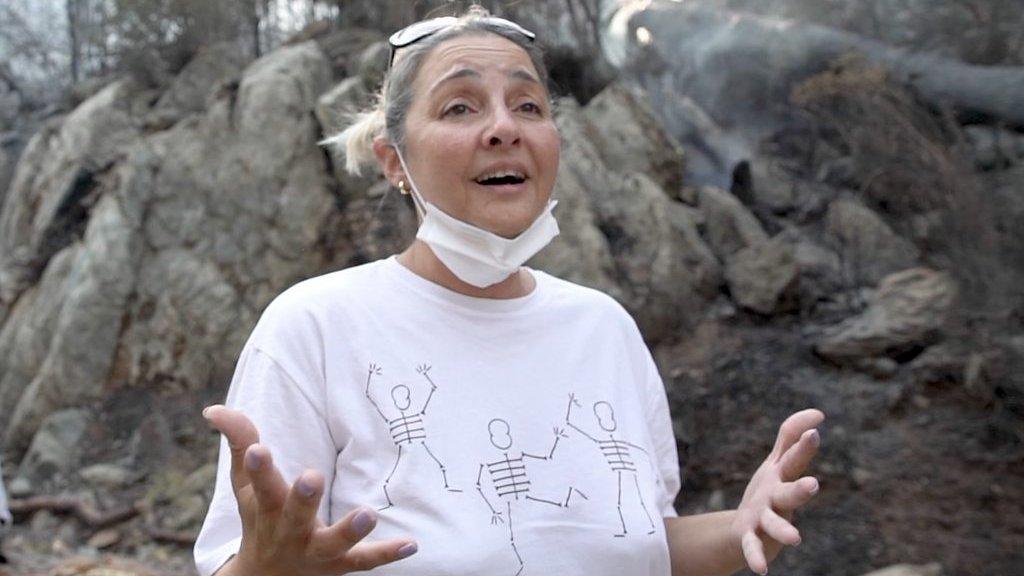Greece battles deadly wildfires near Athens and on Evia island
- Published
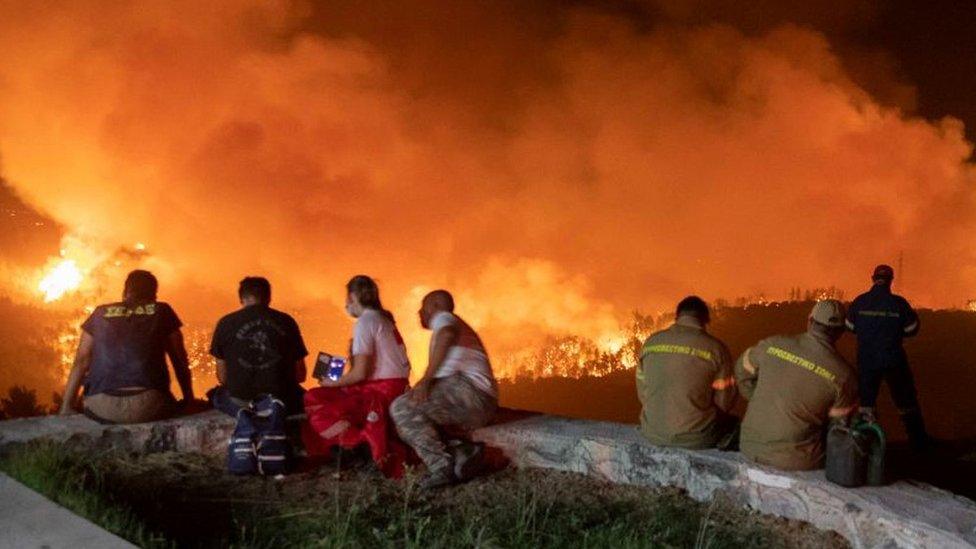
Wildfires have swept across the island of Evia near Athens
Greece carried out mass evacuations overnight in the northern suburbs of Athens and on the nearby island of Evia as wind whipped up huge wildfires.
Thousands left their homes near the Greek capital, which is cloaked in acrid smoke, and 600 fled Evia by boat.
On Friday, a man was killed by a falling electricity pylon near Athens, health officials said.
Firefighters from France, Switzerland, Sweden, Cyprus and Romania have been deployed to assist Greece.
Gale-force winds are forecast to fan the many blazes.
Residents of Marathon, north-east of Athens, were told to head to the coast on Friday as wildfires spread along several fronts.
Dozens of homes have been destroyed or damaged, and several dozen injured people are in hospital.
"If some people still doubt if climate change is real, let them come and see the intensity of phenomena here," Greek Prime Minister Kyriakos Mitsotakis said.
Climate change increases the risk of the hot, dry weather that is likely to fuel wildfires. Greece has had a week of temperatures above 40C (107 Fahrenheit) and vegetation is bone-dry.
The world has already warmed by about 1.2C since the industrial era began, and temperatures will keep rising unless governments around the world make steep cuts to emissions.
In Kourkoloi on the island of Evia, resident Ioannis Aslanis told AFP news agency, "it's a disaster, everything burnt in the village".
Wildfires are also raging in Albania and Bulgaria, where they began spreading in late July. North Macedonia has declared a state of emergency over its own blazes.
And in south-western Turkey, the heatwave has made local wildfires the most intense on record. Eight people have died and several hundred have been injured, with thousands of residents and tourists forced to flee.
On Thursday Turkish firefighters managed to prevent the flames reaching a coal-fired power station at Kemerkoy, in the southern Mugla province. The province, which includes the resort of Marmaris, has seen 55,000 hectares of forest engulfed by flames.
Critics have accused President Recep Tayyip Erdogan's government of failing to prepare adequately for such a disaster. They say Turkey's response was too slow and firefighters were under-resourced.
Mr Erdogan described these as Turkey's worst-ever wildfires. He blamed the lack of resources on the Turkish Aeronautical Association, saying it had failed to provide an adequate number of aircraft to tackle the blazes.
Turkey fires: Will the bees return?
Related topics
- Published2 August 2021
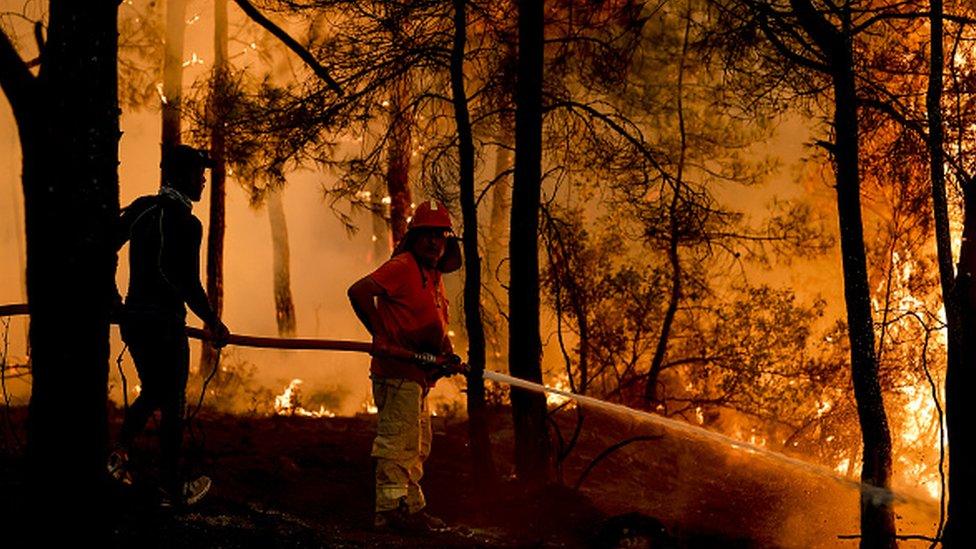
- Published1 August 2021
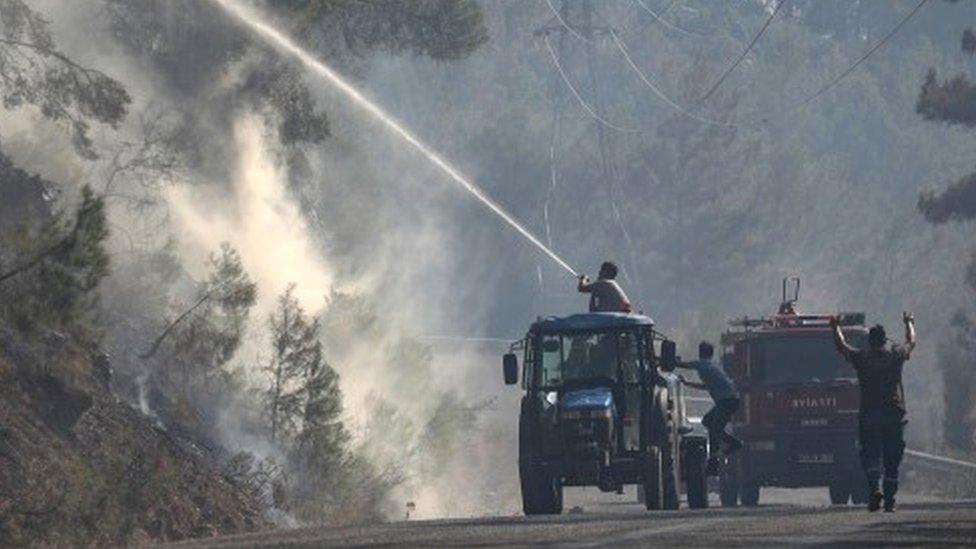
- Published2 August 2021
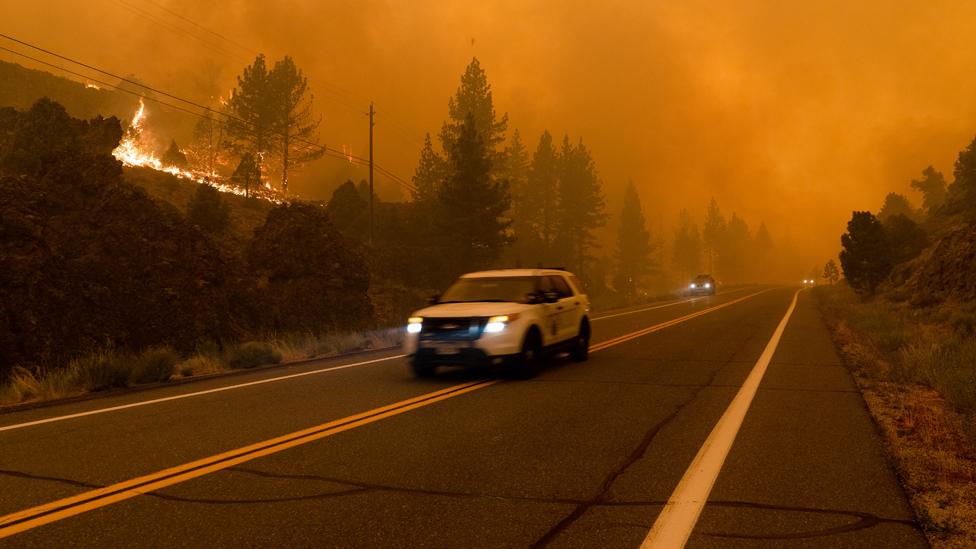
- Published6 August 2021
